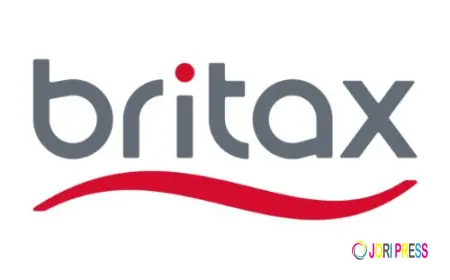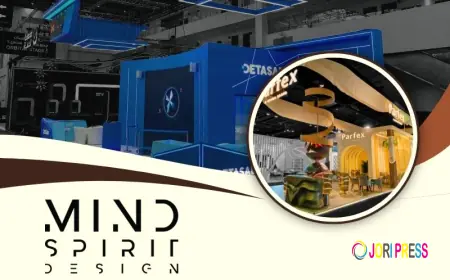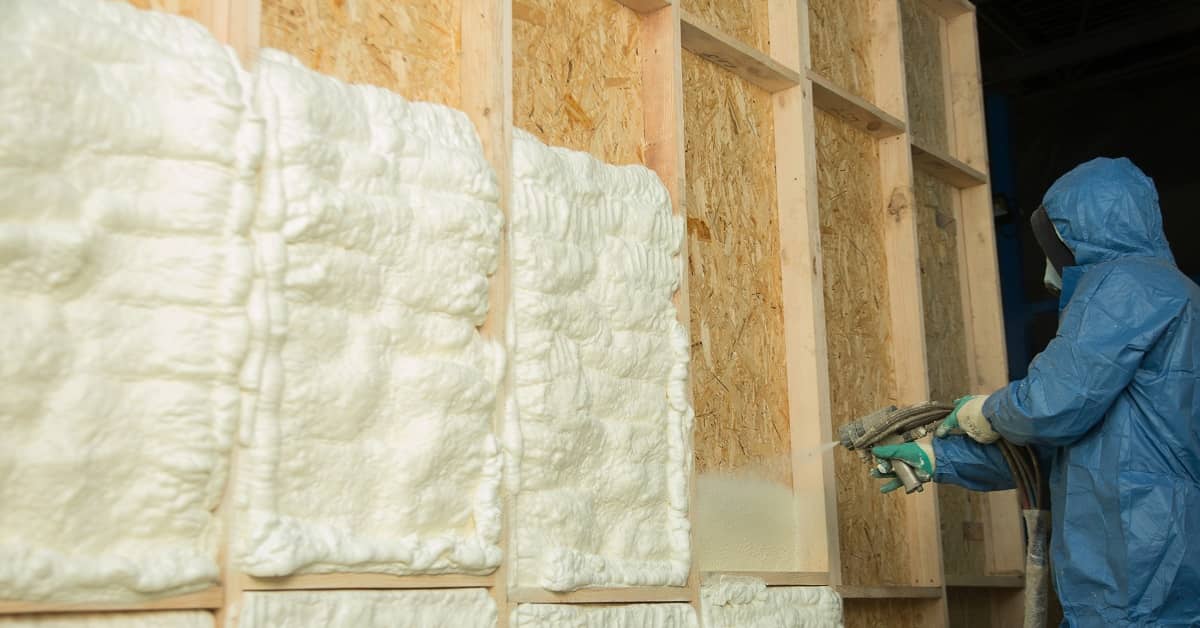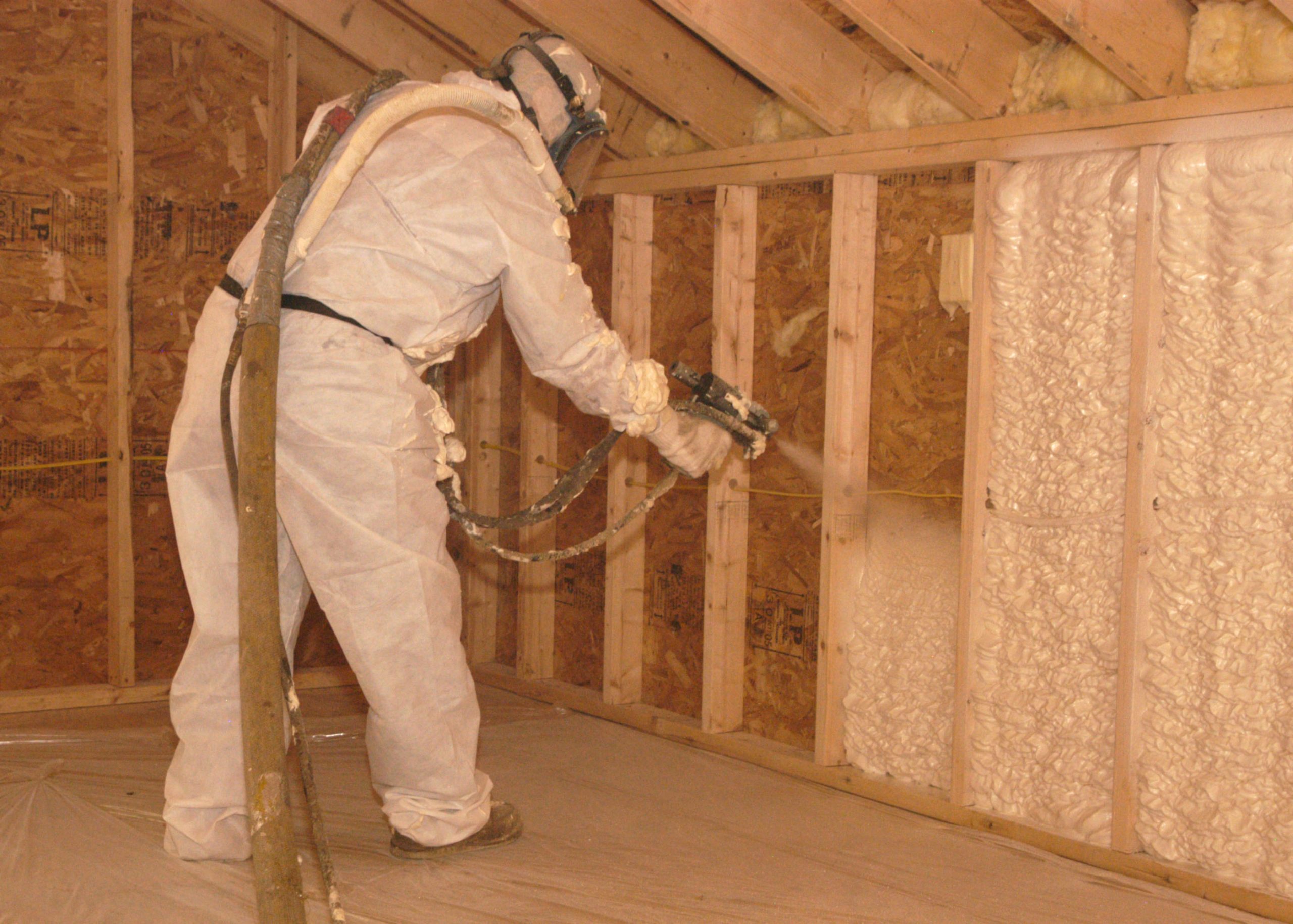Trusted Spray Foam Insulation Services in Eastpointe, MI
This post explores what makes these services valuable, how they work, and which types meet different building needs.
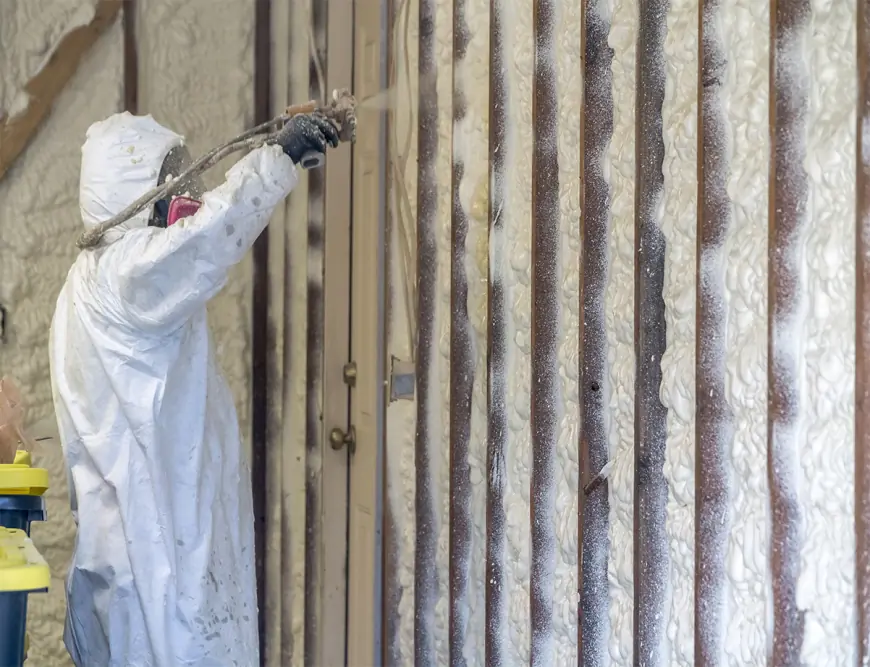
Spray foam insulation has become a reliable solution for improving energy performance in homes and commercial properties. In Eastpointe, MI, where seasonal temperature shifts can impact indoor comfort and energy costs, advanced insulation strategies are playing a growing role in long-term property performance.
Choosing the right spray foam insulation services in Eastpointe, MI means evaluating experience, service range, application techniques, and long-term performance outcomes. This post explores what makes these services valuable, how they work, and which types meet different building needs.
Benefits of Using Spray Foam Insulation
Spray foam insulation offers a wide set of benefits beyond simple thermal control. For property owners in Eastpointe, MI, these advantages translate into measurable improvements in efficiency, air quality, and durability.
Improved Energy Retention and Utility Savings
Closed-cell and open-cell spray foam act as both insulation and air sealant. Once applied, they form an airtight barrier that minimizes:
-
Heat loss in winter
-
Heat gain in summer
-
Air infiltration through gaps or cracks
This barrier helps HVAC systems run more efficiently, often lowering monthly utility costs.
Air Quality and Moisture Control
Spray foam also helps reduce allergens, pollutants, and moisture entry. With fewer gaps in the building envelope:
-
Mold and mildew growth is reduced
-
External pollutants have limited entry
-
Interior humidity is more stable year-round
Structural Reinforcement
Closed-cell foam adds rigidity to walls and ceilings. In certain applications, this can:
-
Improve wind resistance
-
Enhance overall building durability
-
Help meet specific performance standards for new construction
Types of Spray Foam and Related Insulation
Several types of insulation serve different performance needs. While spray foam remains a popular choice, ColonyInsulation offers multiple options depending on building age, budget, and thermal goals.
Open-Cell vs. Closed-Cell Spray Foam
|
Feature |
Open-Cell Foam |
Closed-Cell Foam |
|---|---|---|
|
Density |
Low |
High |
|
R-Value |
~3.5 per inch |
~6.5 per inch |
|
Soundproofing |
Excellent |
Moderate |
|
Water Resistance |
Low |
High |
|
Best Use |
Interior walls, sound dampening |
Basements, crawl spaces, roofs |
Cellulose and Fiberglass Options
-
Loose-Fill Cellulose: Recycled content, suitable for attic spaces and dense-pack wall retrofits.
-
Fiberglass Batt Insulation: Widely used in walls and ceilings, best suited for projects requiring quick installs or lower up-front cost.
Spray Foam Application Process
Insulation isn’t just about material—it’s about method. Spray foam installation requires precise planning, environmental consideration, and proper curing.
Initial Site Assessment
Every project begins with:
-
Inspection of wall cavities, attic, crawl spaces
-
Identifying gaps, cold spots, and infiltration areas
-
Reviewing building code and performance requirements
Spray Foam Installation Steps
-
Surface Prep: Clearing dust, debris, and old insulation
-
Application: Using specialized spray rigs for accurate material mixing and application
-
Curing: Allowing foam to expand and harden properly to form an airtight seal
Experienced installers ensure correct thickness, consistent coverage, and safe ventilation during curing.
Environmental Considerations and Long-Term Impact
For those prioritizing sustainable building, spray foam offers specific ecological benefits—both in the product itself and in long-term impact.
Lower Energy Demand
By reducing heating and cooling loads, spray foam indirectly lowers carbon emissions from electricity and fuel usage.
Product Longevity
Compared to fiberglass or cellulose, spray foam:
-
Doesn’t sag over time
-
Maintains performance for decades
-
Requires little to no maintenance
This reduces material waste from reapplications or repairs.
Eco-Friendly Material Options
Some spray foam systems are available with low-VOC and renewable-based formulations, making them more compatible with green building certifications.
Professional vs. DIY Installation
While DIY kits exist, spray foam insulation is best handled by trained professionals. Proper installation affects not only immediate performance but long-term building safety.
Key Differences
-
Equipment: Professional-grade rigs offer better mixing and control
-
Application Depth: Experts ensure correct layer thickness and R-value
-
Ventilation: Proper airflow prevents harmful gas buildup during curing
Improper DIY application can lead to gaps, off-ratio foam, and voided warranties.
Common Myths About Spray Foam Insulation
Several misconceptions continue to circulate regarding foam insulation. Clarifying them helps property owners make informed decisions.
Myth: Spray Foam Is Only for New Construction
Fact: Foam works just as well for retrofits and renovations. It can be installed in existing walls, attics, and crawl spaces with the right access.
Myth: All Spray Foam Is the Same
Fact: Product composition, R-value, curing time, and installation technique vary widely across brands and types.
Myth: Spray Foam Can Replace Ventilation
Fact: While foam improves air sealing, it doesn’t eliminate the need for mechanical ventilation to maintain healthy indoor air quality.
Spray Foam Services Offered by ColonyInsulation
ColonyInsulation delivers full-spectrum insulation solutions in Eastpointe, MI. Below is a summary of available services.
Residential Insulation
Thermal and air-sealing solutions for homes to improve comfort, energy savings, and indoor air control.
Commercial Insulation
Best commercial insulation service for offices, retail, and light industrial buildings targeting energy compliance and tenant comfort.
Attic Insulation
Spray foam and blown-in solutions for under-roof performance. Helps reduce heat loss and control seasonal temperature changes.
Crawl Space Insulation
Closed-cell foam to prevent moisture infiltration and enhance HVAC efficiency in homes and small buildings.
Crawlspace Encapsulation
Combines insulation, vapor barriers, and sealing for improved moisture control and air quality in low-clearance spaces.
Wall Insulation
Injection foam and retrofit solutions to address wall cavity gaps in both new and existing buildings.
Air Sealing
Detailed inspection and sealing of cracks, joints, and penetrations to eliminate air leakage paths.
New Construction Insulation
Full building-envelope insulation using advanced materials for compliance with building energy codes.
Retrofit Insulation
Re-insulation of older properties to meet current energy performance needs without full remodels.
Fiberglass Batt Insulation
Cost-effective thermal barrier for ceilings, attics, and open wall cavities in traditional builds.
Loose-Fill Blown-In Cellulose Insulation
Sustainable, dense-packed option for attics and retrofit wall assemblies.
Intumescent Coatings
Fire-resistant coatings applied over foam insulation to meet fire code requirements in exposed applications.
Conclusion
Spray foam insulation services in Eastpointe, MI provide measurable benefits for homes and commercial properties. From thermal performance to air sealing and moisture control, professionally applied insulation supports long-term building efficiency.
Whether improving an older structure or completing new construction, using quality spray foam installed by experienced technicians can result in significant energy savings, better indoor air control, and greater comfort.
Ready to Achieve Energy-Efficient Indoor Performance?
Spray foam insulation plays a direct role in improving comfort, air quality, and long-term value. Colony Insulation helps residential and commercial buildings reach performance goals using tested, reliable insulation strategies. Call (586) 488-2928 or email [email protected] to schedule a site evaluation or service estimate.
FAQs
How long does spray foam insulation last in a home or commercial building? Spray foam insulation typically lasts over 30 years. It doesn’t settle or deteriorate like traditional materials, making it a stable, long-term investment.
Can spray foam insulation be added to existing walls or attics? Yes, foam can be retrofitted into walls, attics, and crawl spaces. Technicians use injection or open-blow methods based on the area and access.
Is spray foam a safe option for indoor use? When installed correctly, spray foam is safe. Installers ensure proper ventilation during curing and use low-emission formulations approved for indoor applications.
Will foam insulation reduce outside noise? Open-cell spray foam has strong sound-dampening properties. It helps reduce airborne noise between rooms or from outside sources.
Are there energy efficiency incentives for using spray foam insulation? In some cases, yes. State and federal programs may offer tax credits or rebates for high-efficiency upgrades including spray foam insulation. Consult local energy programs for current availability.
Grants Pass, OR Daniel Walker, owner of Colony Insulation and Spray Foam Magazine’s 2024 Contractor of the Year, leads with over two decades of experience in the insulation industry. Passionate about energy efficiency and customer satisfaction, Daniel is dedicated to delivering high-performance insulation solutions across Michigan with precision and care.
Reviewer: Jennifer Morales, a seasoned insulation consultant with over 8 years of industry experience, specializes in residential and commercial energy solutions. Known for her practical insights and quality-first approach, Jennifer ensures all content reflects real-world expertise and up-to-date best practices.
What's Your Reaction?
 Like
0
Like
0
 Dislike
0
Dislike
0
 Love
0
Love
0
 Funny
0
Funny
0
 Angry
0
Angry
0
 Sad
0
Sad
0
 Wow
0
Wow
0







